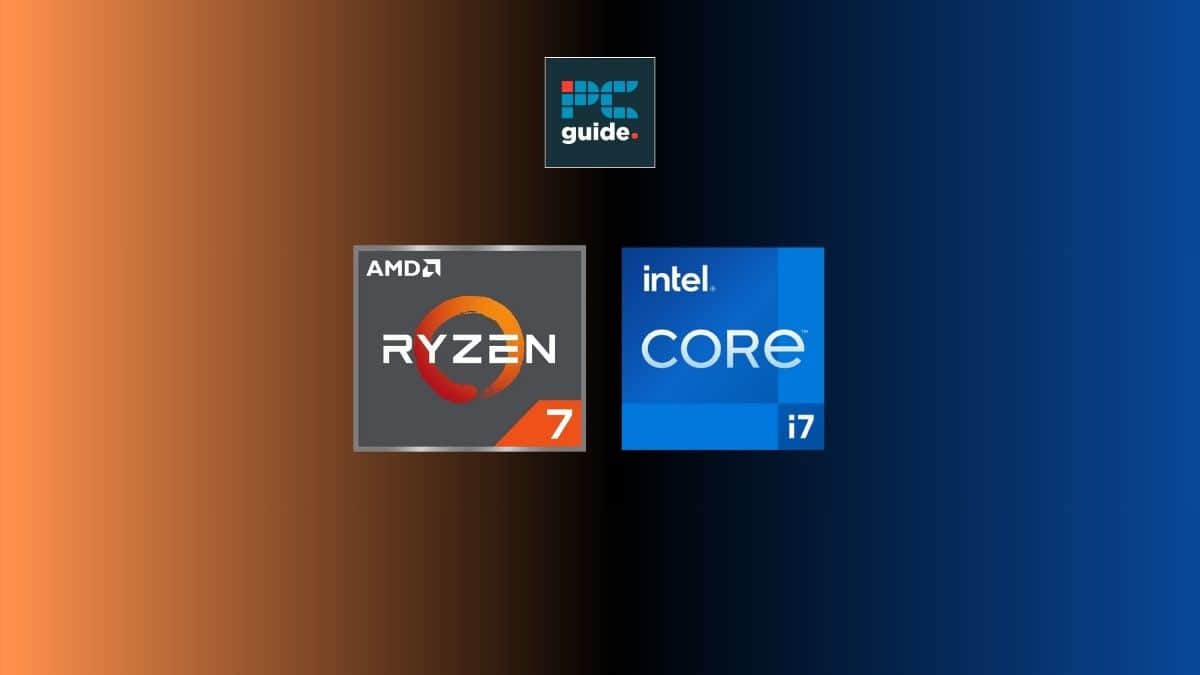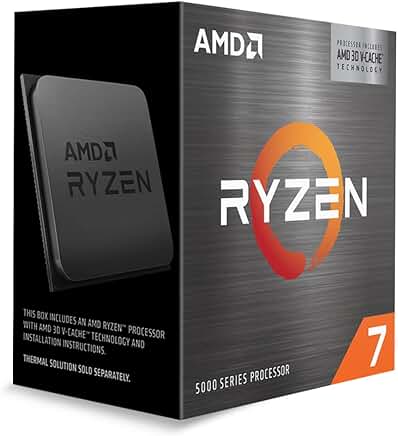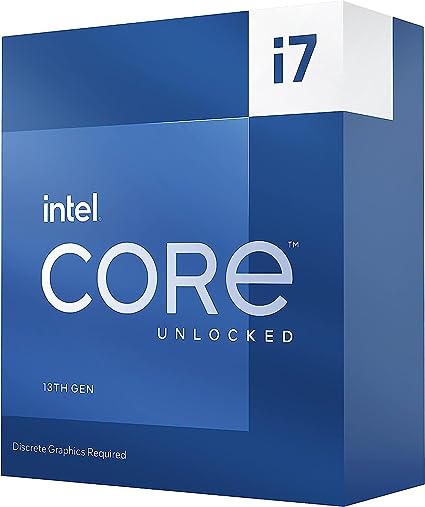AMD Ryzen 7 5700X3D vs Intel Core i7 13700K – We decide

Table of Contents
The 5700X3D comes as a perfect option for those looking to get the most value out of AM4 technology. However, how will the CPU compare against the big leagues? In this CPU comparison piece, we will analyze the AMD Ryzen 7 5700X3D vs Intel Core i7 13700K and their main differences.
For additional AMD Ryzen and upcoming CPU content, be sure to check out our in-depth breakdown of the AMD Ryzen 7 5700X3D and see the best motherboards for the AMD Ryzen 7 5700X3D.
Prime Day may have closed its doors, but that hasn't stopped great deals from landing on the web's biggest online retailer. Here are all the best last chance savings from this year's Prime event.
- Sapphire Pulse AMD Radeon™ RX 9070 XT Was $779 Now $719
- AMD Ryzen 7 7800X3D Processor Was $449 Now $341
- Skytech King 95 Ryzen 7 9800X3D gaming PC Was $2,899 Now $2,599
- LG 77-Inch Class OLED C5 TV Was $3,696 Now $2,996
- AOC Laptop Computer 16GB RAM 512GB SSD Was $360.99 Now $306.84
- Lexar 2TB NM1090 w/HeatSink SSD Was $281.97 Now $214.98
- Apple Watch Series 10 GPS+ Smartwatch Was $499.99 Now $379.99
- AMD Ryzen 9 5950X processor Was $3199.99 Now $279.99
- Garmin vívoactive 5 Smartwatch Was $299.99 Now $190
*Prices and savings subject to change. Click through to get the current prices.
AMD Ryzen 7 5700X3D vs Intel Core i7 13700K – Specs
The Intel Core i7 13700K takes the core count comparison to a new level compared to the AMD Ryzen 7 5700X3D. With 16 cores and 24 threads, it significantly surpasses the 5700X3D’s 8 cores and 16 threads. The Intel Core i7 13700K also takes the lead with a 125W TDP, 5,600 MHz worth of DDR4 memory, and a maximum boost clock speed of 5.4 GHz. The AMD Ryzen 7 5700X3D, with a lower TDP, is only able to outmatch the 13700K in L3 Cache, boasting an impressive 93MB.
| Specs | AMD Ryzen 7 5700X3D | Intel Core i7 13700K |
|---|---|---|
| Cores | Threads | 8 Cores | 16 threads | 16 Cores | 24 threads |
| L3 Cache | 96MB | 30 MB |
| TDP | 105W | 125W |
| DDR4 memory | 3200 MHz | 5,600 MHz |
| Base Clock | 100 MHz | P-Core: 3.4 GHz / E-Core: 2.5 GHz |
| Max. Boost Clock | 4.1 GHz | 5.4 GHz |
While investigating specs and strongest components, we thought it best to provide some additional context. Raptor Lake was the consolidation of Intel’s core and thread architecture, the use of P-cores and E-cores mixed with a smaller lithography helped Team Blue get to performance the previous generation couldn't have achieved. Intel also ensures the model has PCI-Express 5.0 (PCIe) and the 700 Series Chipset. With that in mind, we strongly consider the Core i7-13700K the best option against the Ryzen 7 5700X3D
To give a little more context to what Raptor Lake CPUs offer, we encounter public test results and user benchmarks of the 13700K against the beefier 5800X3D. Tests such as GeekBench V6 results, have shown that the Intel processor outclasses the Ryzen 7 5800X3D with a 36% higher single-core and a staggering 63% better multi-core performance. So, it is evident when comparing the 13700K to the higher-tier 5800X3D on average score. Now, imagine how would it compare against the low-tier predecessors, like the 5700X3D.
AMD Ryzen 7 5700X3D vs Intel Core i7 13700K – Performance
This increase in cores and threads by Intel isn’t just about numbers. It directly translates into enhanced performance, particularly in multi-threaded and single-threaded tasks. The 13700K stands as a more comprehensive unit for people looking to get the best performance from their system. Even if you’re thinking in gaming, the 13700K will outperform the 5700X3D, especially in fast-paced computing games.
While the AMD Ryzen 7 5700X3D is a solid choice for Zen 3 enthusiasts, especially in real-world performance, the Intel Core i7 13700K emerges as the superior overall performer. Its advanced core architecture and higher boost clock speeds make it a more versatile and powerful CPU. For users seeking a processor that excels not just in gaming but in a variety of demanding computing tasks, the 13700K is undoubtedly the better option.
AMD Ryzen 7 5700X3D vs Intel Core i7 13700K – Price
The pricing aspect of the AMD Ryzen 7 5700X3D and Intel Core i7 13700K adds another interesting layer to this debate. The Ryzen 7 5700X3D, with its launch price of $249, offers a more budget-friendly option for those looking to maximize value within the AM4 platform. If the 5800X3D is too expensive, then this is a great and reliable gaming option.
In contrast, the Intel Core i7 13700K, originally priced at an MSRP of $409, has seen a slight decrease in market price. The model can now be found available for around $389. This price, although higher than the 5700X3D's, is justified by the 13700K’s superior performance and specifications. The Intel CPU's significant advantage in core and thread count, along with its higher boost clock speed, positions it as a more powerful and versatile processor. The AMD Ryzen 7 5700X3D has a release date of January 31.
What do you value?
Buying a CPU should depend solely on what you, as a consumer, value. Each user will be different, with a range of needs and financial accessibility.
Is Ryzen 7 or i7 better for gaming?
When discussing gaming, it is important to recognize that specific gaming titles can cause peaks and troughs in peak performance and graphics. So, while the specific game can dictate performance, Intel’s i7 series generally performs better for single CPU core performance, creating faster gaming experiences for console and PC gamers. On the other hand, the Ryzen 7 series, shines in multi-threaded titles and video processing.
Final thoughts
In summary, the battle between AMD’s Ryzen 7 5700X3D and Intel’s Core i7 13700K tilts decidedly in Intel’s favor in terms of overall performance. The 13700K’s superior core and number of threads, coupled with its higher boost clock, make it a more versatile and powerful choice for a wide array of computing tasks. These tasks include demanding gaming but it goes up to intensive multitasking and content creation. However, AMD’s Ryzen 7 5700X3D presents stiff competition with its attractive pricing. The significantly lower cost of the 5700X3D makes it a compelling option for consumers on a tight budget, particularly those focused on gaming within the Zen 3 ecosystem.



